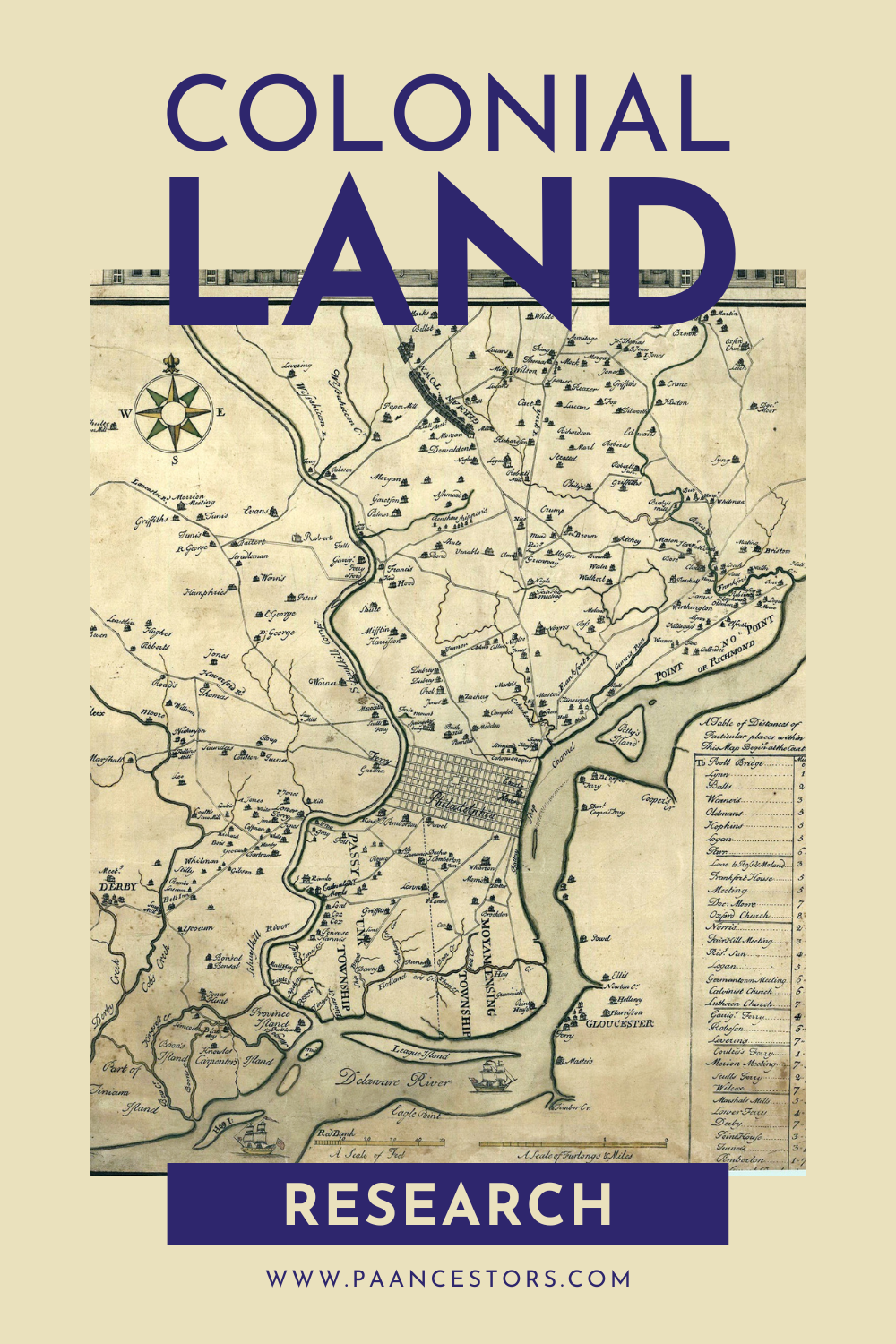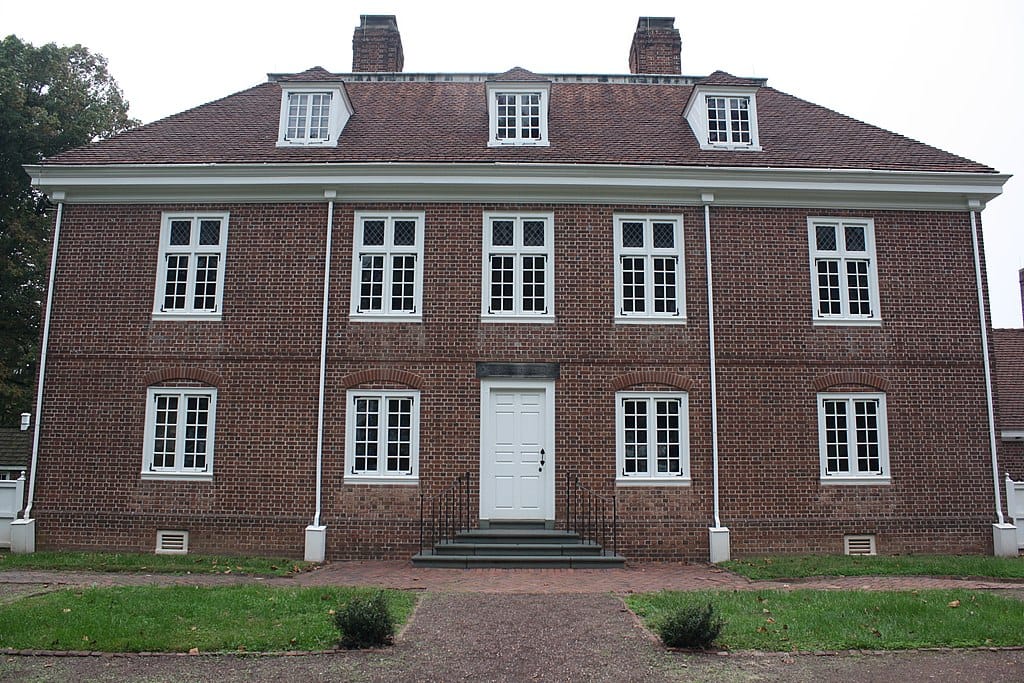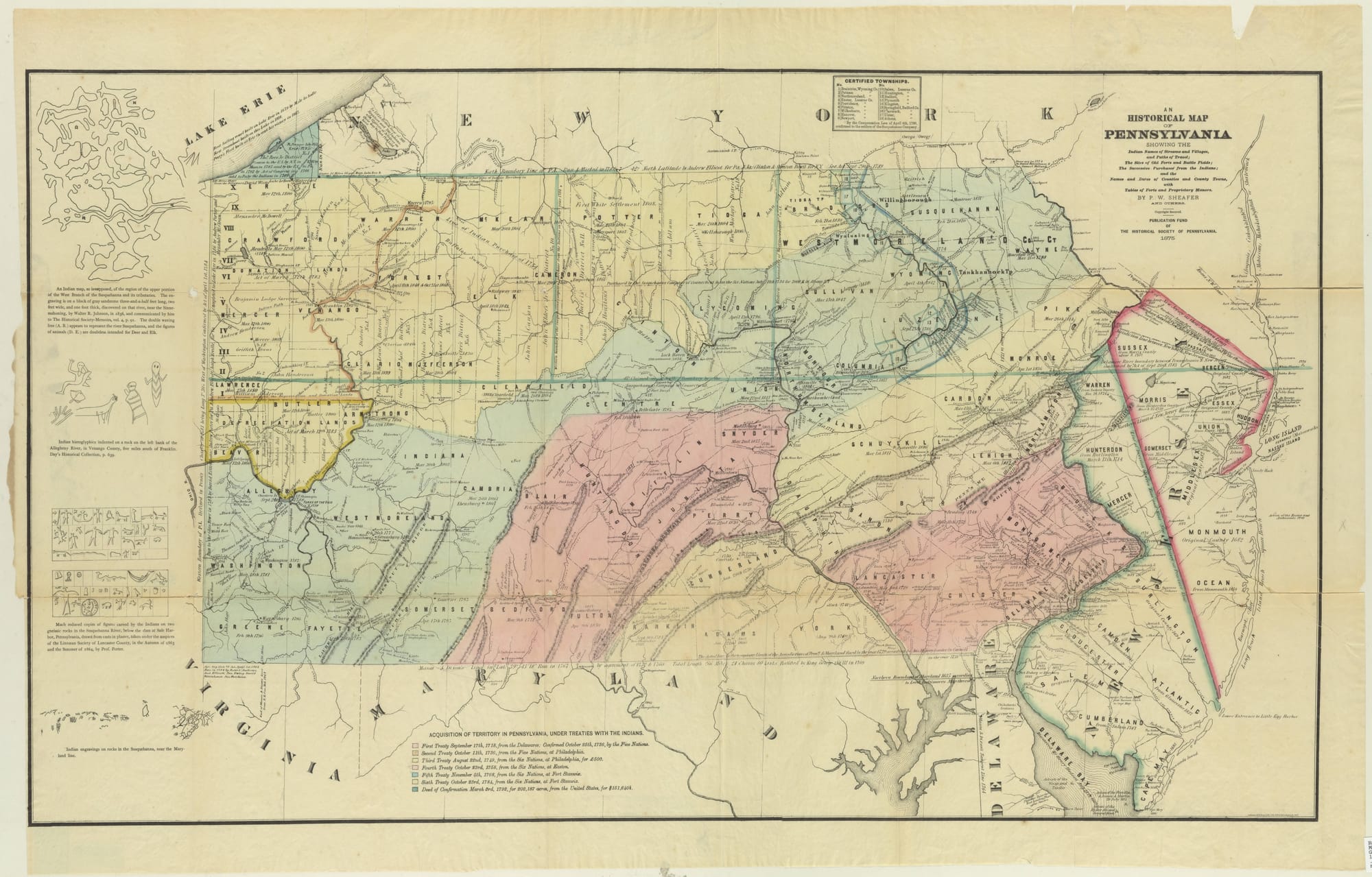Getting Started in Pennsylvania Colonial Land Records Research
Whether you doing genealogy, historical house research, or just curious about colonial history, Pennsylvania land records are key to your research. Here's how to find them.

Family history and historical house research involves examination of land records.
In Pennsylvania, a state rich with 100 years of colonial history, land records offer a glimpse into the lives of early settlers, the transformation of the land, and the foundational structures of communities.
This article will help researchers get started in colonial land records in Pennsylvania, discussing the various types of records available and where to find them.
The Cornerstone of Colonial History: Proprietary Land Records
Start with County Deed Books
For genealogists and historians, early county deed books are the first step in tracing land ownership. The process is one of working backwards through time of real estate transactions which means beginning with the county deed books we use today.
As counties were established, the responsibility for recording land transactions, such as property deeds, rested with the Recorder of Deeds in each county. The deed books recorded conveyances, mortgages, leases, and other documents of private land ownership.
Once all the property deeds have been traced back as far as they go in the county for a plot of land, the next step is to search, the proprietary land records.

Proprietary Grants and Patents
During the colonial era, the land that now forms Pennsylvania was managed and distributed by its proprietors, notably William Penn and his heirs. These proprietary land records, encompass William Penn’s grants, patents, and surveys. This is how Pennsylvania’s land was first assigned ownership.
The land was purchased or negotiated through treaty with the native peoples who lived here, including the Lenape, Shawnee, Susquehannock, and Iroquois, over the years 1682 through 1792. During this time the land records were inconsistently maintained and surveys often conflicted with each other.
The first owners of land were fellow Quakers of the proprietor of the province, William Penn. The initial layout of these Quaker settlements were designed as manorial estates with indentured tenant Ulster Irish labor or enslaved Africans to cultivate the land.
Proprietary land records not only offer details about the land itself but also about the people who lived, worked, and formed communities within these historical boundaries.
The Commonwealth's Ledger: Warrant Registers and Survey Books
Following the American Revolution, the administration of land transitioned to the Commonwealth of Pennsylvania. This period saw the creation of warrant registers and survey books, documenting the distribution of state-owned lands. These Pennsylvania land titles are essential for tracking the movement and settlement patterns post-independence and showcase how land was allocated, surveyed, and transferred to private ownership.
Patent Registers: Finalizing Ownership
The issuance of Pennsylvania land patents marked the completion of land ownership transfers from the state. Patent registers are repositories of these transactions, containing detailed information about the land and its new owners. For researchers, these registers offer a conclusive link to an ancestor's landholdings and their official recognition by the state.

Complementary Sources: Beyond the Property Deeds and Land Patents
Tax Assessment Records
Tax records provide a different lens through which to view land ownership and usage. These records, detailing property size, location, and valuation, can help trace the economic status of landowners and tenants, changes in property boundaries, and shifts in land utility.
Subdivision and Plat Maps
For a more visual approach, subdivision and plat maps illustrate how large tracts of land were divided into smaller parcels. These property surveys, accompanied by maps and documents, are key to understanding property boundaries, and historical subdivisions. These are inconsistently found in counties across Pennsylvania.
Additional Recorder’s Office Documents
An assortment of miscellaneous documents related to land transactions, such as sheriff’s deeds and mortgages, are stored in the Recorder of Deeds offices. These records provide additional context and details on land ownership and transactions.
While you are at the county courthouse, you'll find there are many other records you may want to research. I share some records and techniques in this article, The Crucial Role of County Records in Pennsylvania Genealogy.
Your Land Records Research Journey
Pennsylvania State Archives
The Pennsylvania State Archives houses an extensive collection of colonial land records, from patent registers to survey books. Researchers can access these records in person or through online resources, making it a primary destination for anyone diving into Pennsylvania’s colonial land history.
County Courthouses
County courthouses hold the key starting point for most real estate research. Pennsylvania courthouses can be visited in person or the deeds can be searched through the county’s website. Visiting in person allows researchers to access deed books, tax records, and maps, offering a more comprehensive view of land history and transactions.
Conclusion
Whether you are tracing your ancestry, conducting historical house research, or simply curious about the colonial landscape, accessing colonial land records is key to your research. Both county real estate deeds and proprietary land records are needed to complete colonial land research.
Researchers can piece together their personal history of Pennsylvania's colonial heritage, and learn insights into the lives of those who shaped the commonwealth.
© 2019–2024 PA Ancestors L.L.C. and Denys Allen. All Rights Reserved.
